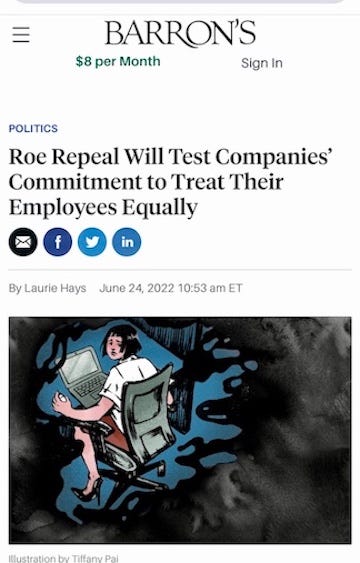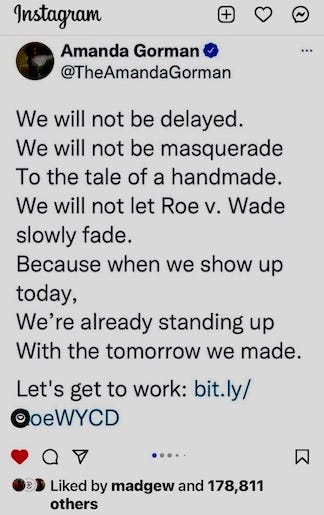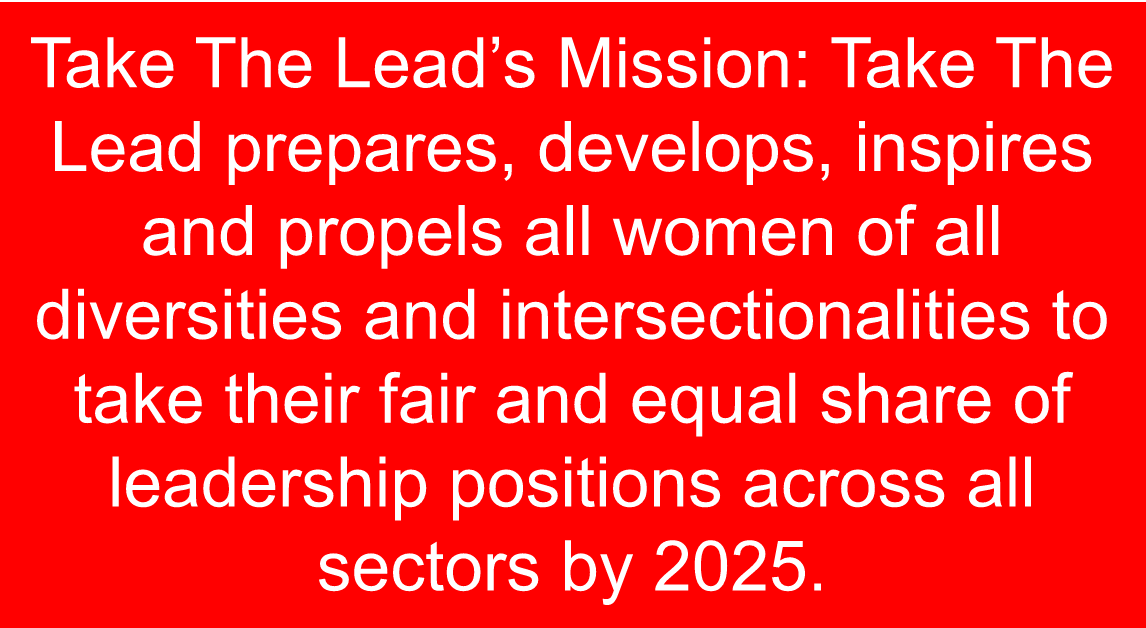The #1 Leadership Strategy for Your Company in Times of Controversy (Read #RoevWade)

Issue 203 — June 27, 2022
The United States Supreme Court ignited a political and social firestorm by overturning Roe v. Wade on June 24, the last day of its 2022 session.

Fifty years of precedent affirming women’s civil and human right to make their own childbearing decisions were wiped out in a flash. Not content to eliminate abortion rights by upholding Mississippi law in Dobbs v. Jackson, language in Justice Clarence Thomas’s concurring opinion made clear that LGBTQ rights including marriage equality as well as the right to contraception affirmed in the 1965 Griswold v. Connecticut ruling are next on the legal chopping block.

Now if you are a business owner or executive, you might be thinking you’d like to bury your head and hope this moment blows over. You might make the case that your mission is making money, not taking on social issues. That would be understandable. And it has worked in the past to a certain degree.
But no more. Gillian Tett, Chair of the Financial Times editorial board reports from the Aspen Institute Ideas Festival:
“Many other companies are trying to keep their heads down, while they seek to (re)define how to behave in an “ethical” way in these partisan times. Will this work? We would love to hear what you think — not least because Jen Stark of the Center for Business and Social Justice is warning that these corporate dilemmas will only get worse in the months ahead. “The fall of Roe is just the end of the beginning,” she told the FT. “Companies in America have become this firewall when it comes to mitigating the harm of extreme social policy in the states.”
I recently attended a Fast Company event in which several CEOs vociferously shared their concerns about whether they could stretch their time and company bandwidth to take on social issues when they face daily business challenges.
At the same time, employee expectations are escalating for their companies to take positions on these important social justice matters. That is also understandable. These issues affect their lives in personal and profound ways. The public is watching too.

The vigorous way companies sprang into action to speak up for Black Lives Matter and fly the rainbow flag must now be matched by rising to the challenge of visibly and meaningfully supporting women’s equal rights to their own bodies and the sanctity of their lives.
Remember that racism, sexism, homophobia, antisemitism, islamophobia and other biases are based on seeing another group as lesser than the predominant group. Making any group into an “other.”
Black Lives Matter’s statement is strong and accurate: “When the Court makes the argument that certain rights are illegitimate because they are not explicitly named in the Constitution, they are asserting that only white male property owners’ rights are legitimate.”

So, Mr. or Ms. Leader, you have only four basic strategies for solving any problem: fight, flight, flank, or create a map of your own.
Flight isn’t an option. The issues will find you when you have female employees who need services that have been criminalized in your state or who fear they will be. The controversy will find you when prospective employees decline to work for your company if it is in a state that has criminalized abortion or simply doesn’t state a values-based position on the issue.
Fighting is the job of the advocacy groups, though they need and welcome your help, especially by stating your position publicly and by making your support of public officials and policy consistent with your stated values on women’s rights.
Flanking might be an artful dodge — as in, get around the controversy by making a statement of support for women’s equal rights and bodily integrity but do little else and hope that will allow you to skate past the crisis. That approach will catch up with you and you risk being publicly called out for hypocrisy.
The number #1 successful strategy in times of controversy is to define your own terms, by creating a new map on which to engage.

How?
- Worry less about what the arguments are and more about what your values are as an individual, a leader, and a company. Get clear on your values and the values that underlie your company culture. How do you want your employees, customers, and the world to see you? If you’ve made statements and started initiatives to include women equitably in your workforce and leadership, if you value equity in compensation and opportunity for advancement, if you are committed to a workplace free of harassment, and if you are aware that the business case for doing all of those is clear — let that guide you to your statements and your policies.
- Be intentional about your communications. Know that your authenticity and consistency will be appreciated. Stay calm and never apologize for taking a stand that supports women’s human and civil rights to make their own childbearing decisions and have access to the healthcare they need.
- Use controversy strategically to host and facilitate conversations. As long as people are talking, they aren’t fighting and they might just get to understand each other better, making for greater employee satisfaction. Make space intentionally for people to engage, for when you do that you can set boundaries for behaviors and time spent on those conversations.
- Never underestimate your impact as a role model for other companies. Leaders must make choices. You can never please everyone every time. Making a clear choice in a time of controversy shows you as a leader and gives others courage to do the same. Employee loyalty will also build when you are doing what is right, based in a clearly articulated set of values. And employees are your best emissaries.
- Get support from other like-minded leaders and companies. There is strength in belonging to groups like Civic Alliance that helps its member organizations provide accurate information about their voting rights and procedures in their states, and the growing number of companies that have joined the #dontbanequality movement.
One of my favorite quotes, which I refer to frequently in my 9 Leadership Power Tools trainings is:
“The ultimate measure of a man is not where he stands in moments of convenience and comfort, but where he stands at times of challenge and controversy.” — Dr. Martin Luther King Jr.
I feel sure if he were writing those words today, he would include “woman.” Because as he often noted, justice must expand to be inclusive of all. Instead, six Justices have for the first time in our history taken away a right Americans have had for decades, which 2/3 of Americans believe the Court wrongly decided.

No liberty is more fundamental than ownership of one’s own body, the right to decide about whether, when, and with whom to have children without government intervention, and the ability to access the care we need to keep ourselves healthy.
Any leader and any company that stands on those values is standing on the right side of history and should do so proudly.

GLORIA FELDT is the New York Times bestselling author of several books including No Excuses: 9 Ways Women Can Change How We Think About Power, a sought-after speaker and frequent contributor to major news outlets, and the Co-Founder and President of Take The Lead. People has called her “the voice of experience,” and among the many honors she has been given, Vanity Fair called her one of America’s “Top 200 Women Legends, Leaders, and Trailblazers,” and Glamour chose her as a “Woman of the Year.”
As co-founder and president of Take The Lead, a leading women’s leadership nonprofit, her mission is to achieve gender parity by 2025 through innovative training programs, workshops, a groundbreaking 50 Women Can Change The World immersive, online courses, a free weekly newsletter, and events including a monthly Virtual Happy Hour program and a Take The Lead Day symposium that reached over 400,000 women globally in 2017.
